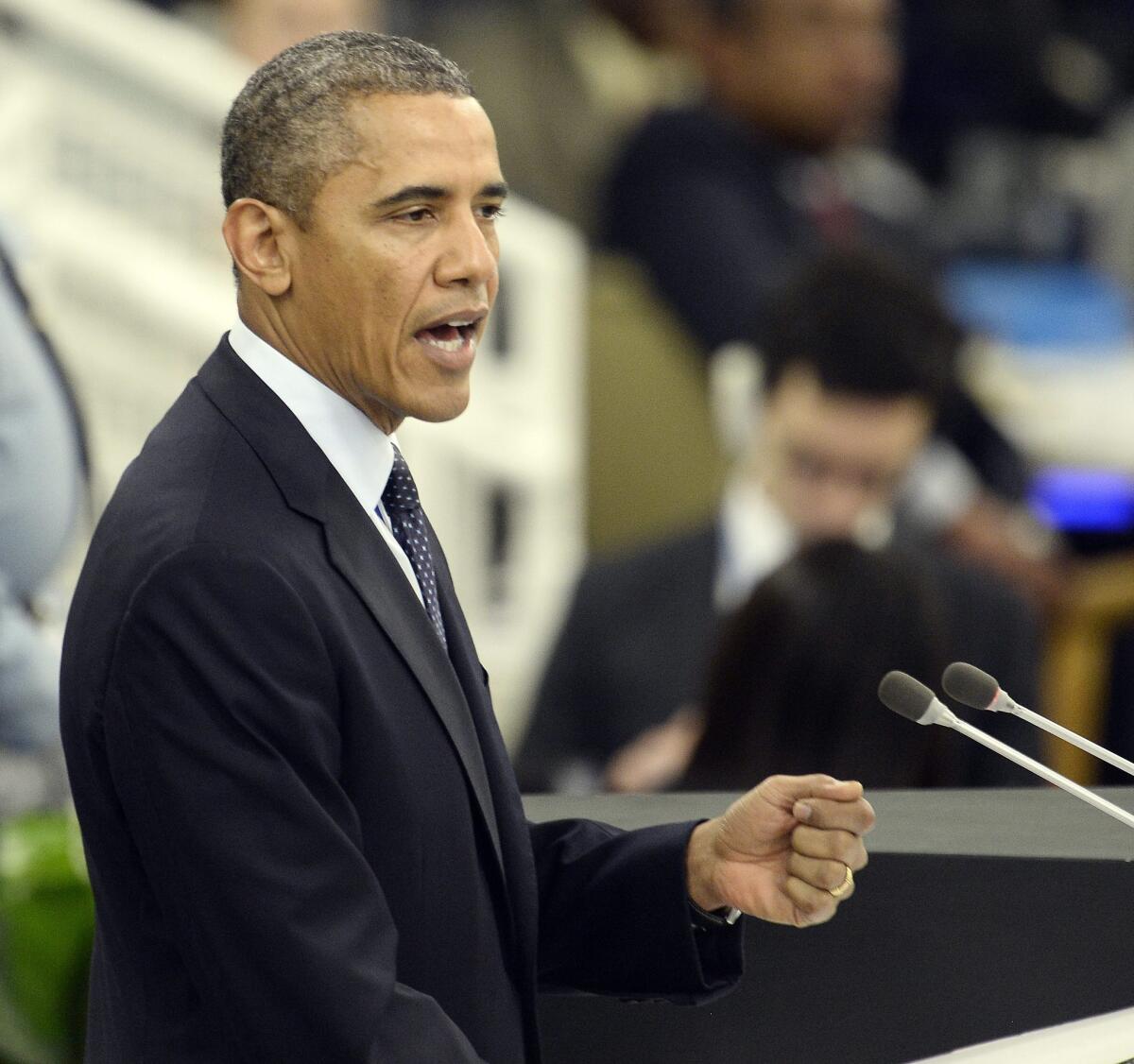Obama’s diplomatic comeback

Barack Obama came to office in 2009 promising a new era of diplomacy and engagement after the confrontational “axis of evil” approach of the George W. Bush administration. During his campaign, Obama said he would be willing to meet with the leaders of Iran, Venezuela, North Korea, Cuba and Syria “without preconditions.”
“I would,” he said. “And the reason is this: that the notion that somehow not talking to countries is punishment to them, which has been the guiding principle of this administration, is ridiculous.”
It was a lofty sentiment — naive, according to many — and in the president’s first term, it didn’t lead very far. Not only were there setbacks with Iran, which cracked down on its opponents in the streets in 2009 and continued to pursue its disputed nuclear program, but relations with Cuba and North Korea did not thaw. Nor did Obama’s handshake with President Hugo Chavez of Venezuela yield diplomatic fruit. By the time the Libya intervention began in 2011, there was more talk about the limits of engagement than about its prospects.
But now, suddenly, diplomacy and engagement have made an unexpected comeback, and, even more amazingly, initial reports are positive. In Syria, where just a few weeks ago a military strike to punish President Bashar Assad for allegedly using chemical weapons seemed imminent, a team of inspectors is engaged in an ambitious project to do away with the nation’s lethal chemical weapons stockpiles, with Assad’s apparent cooperation. The United States and Iran — whose leaders had not communicated directly in 34 years until three weeks ago — are engaged in “substantive and forward-looking” talks in Geneva this week about the future of Tehran’s nuclear program. A senior administration official said that in years of diplomacy, the two sides had never had such “intense, detailed, straightforward, candid” conversations.
It would be a mistake to read too much into such Foggy Bottom buzz phrases as “substantive and forward-looking.” Negotiations could certainly break down over substantive issues. The legacy of distrust that must be overcome with Iran dates back well before the 444-day hostage crisis that followed the Iranian revolution, to the CIA-backed coup that toppled Prime Minister Mohammed Mossadegh in 1953. Furthermore, it may yet turn out that the U.S. is being outmaneuvered by one or both of its antagonists, that it is blathering innocently away while Iran continues to enrich uranium in a bid for nuclear weapons capability or while the Syrians scatter their caches of VX and sarin around the country.
Nevertheless, the administration’s approach is the right one. Of course the United States must trust but verify; of course it must move cautiously so as not to be taken advantage of. Of course there are risks. But nations need tools to settle their disputes other than military might. This is not just because it’s better to solve problems without the human tragedy, disruption and economic devastation of war, although that is certainly true. It’s also because military action is not always practicable. Recent experience has shown that even the United States, despite its vast military superiority, doesn’t always have the will or the stomach to fight dangerous, nonessential wars to solve distant problems.
One of the chief nonmilitary tools of statecraft is economic sanctions. For years the United States has sought to use them to pressure unsavory governments to moderate their behavior; after all, a weapon that can influence bad actors without risking American lives or those of foreign civilians certainly seems like a useful one. But sanctions have not always been successful. In the 1990s, for example, the United States and the United Nations imposed harsh sanctions on Iraq that destroyed the country’s economy, encouraged corruption, led to charges of cruelty against the American government — and yet did virtually nothing to dislodge the cruel Saddam Hussein regime from power.
Yet now in Iran it appears that sanctions have at least helped bring the government to the table. If so, that’s a good sign.
Diplomacy is tricky and inevitably runs a chance of failure. There are always those who denounce negotiations as appeasement and negotiators as naive. But the alternatives are risky as well. The administration is right to seize new diplomatic openings and to pursue negotiated solutions in a careful, deliberate manner.
More to Read
A cure for the common opinion
Get thought-provoking perspectives with our weekly newsletter.
You may occasionally receive promotional content from the Los Angeles Times.









